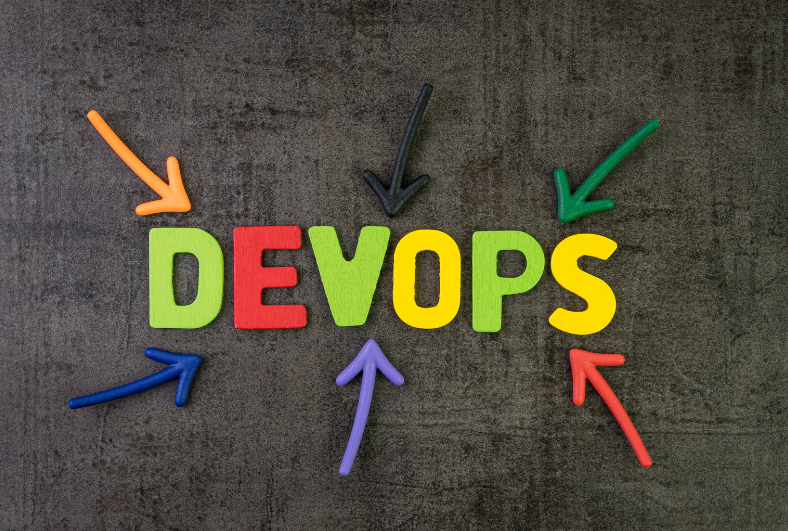
October 31, 2024
DevSecOps: Modern DevOps Practices – Conclusion
DevSecOps rounds out our 3-part blog series on Modern DevOps practices. As a quick recap, Modern DevOps combines and automates the work of software development teams (Dev) and IT operations (Ops) to increase collaboration, communication, and integration. Security plays a large role in Modern DevOps practices. We briefly touched on DevSecOps in the first part of this series, but due to its importance, it warrants a spotlight.
What is DevSecOps?

DevSecOps (Development, Security, and Operations) integrates security into all phases of the software development lifecycle. It reduces the risk of releasing code with security vulnerabilities by incorporating security practices from the start of development.
Traditionally, security is often added at the end of the software development cycle, which can lead to vulnerabilities and higher costs if issues are found after the fact. DevSecOps fixes this by making security a shared responsibility among all team members involved in the development process.
DevSecOps focuses on continuous integration, continuous delivery, and continuous deployment, with security checks and testing integrated throughout these processes. This ensures security is considered at every stage, from initial design through integration, testing, delivery, and deployment. Security should always be at the forefront of any new development or project, yet it often gets overlooked.
Best Practices for Implementing DevSecOps
Implementing DevSecOps effectively involves several best practices to ensure security is integrated throughout the software development lifecycle. While this list is not comprehensive, it represents some of the most important practices:
- Secure your application development process from the beginning. Examples include using secure coding practices and conducting regular code reviews.
- Protect your production environment by using firewalls, intrusion detection systems, and regular security audits, among others.
- Implement least-privilege principles by limiting access to systems and data to only those who need it to perform their job.
- Implement role-based access control (RBAC) to manage permissions and access to resources based on the roles of individual users within your organization.
- Ensure sensitive data is encrypted both at rest and in transit to protect it from unauthorized access.
- Implement multi-factor authentication (MFA) to add an extra layer of security to your systems. In general, MFA should be implemented everywhere where it is applicable. Security breaches are becoming more intense, sophisticated, and common. It’s such a simple, yet effective solution to protect yourself from hackers.
- Use secrets management tools for passwords, API keys, and more.
- Regularly train your employees on security best practices and how to recognize and respond to security threats.
What Are the Challenges?
Simply put, one of the main challenges for implementing DevSecOps is the shortage of true expertise on this subject. Software development is incredibly fast paced. Meaning many IT professionals struggle to keep up with the latest trends and practices. This often results in team stagnation and the inability to adopt modern best practices.
Additionally, technical debt (the accumulation of code inefficiencies over time) can undermine development efforts. This can make it difficult to implement new practices like DevSecOps. Technical debt is another issue that is often overlooked. By not addressing it immediately, it can quickly snowball out of control. We highly recommend reading our blog on technical debt to learn more.
Conclusion
By adopting DevSecOps, organizations can improve their security, reduce the risk of breaches by bad actors, and deliver high-quality, secure software more efficiently. If you’re thinking DevSecOps might be the right solution for your organization, get in touch by filling out the form below.
Thanks for reading! Make sure to subscribe to our blog. We publish technology tips, tricks, and updates every week.
Want to hear the latest from out team of experts? Sign up to receive the latest news right to your inbox. You may unsubscribe at anytime.

Discover More
Integration Between Power Platform and SharePoint Encourages Innovation
Organizations are focusing on innovation, streamlining their processes, and delivering better experiences for employees and customers. Power Platform and SharePoint are the Microsoft products that are helping organizations focus on…
Mastering Subagents in VS Code + Copilot: How To Actually Use Them
If you’ve ever dumped a giant problem into Copilot Chat and watched the conversation slowly turn into spaghetti, subagents are the feature you’ve been waiting for. Think of subagents as…
5 Common Misconceptions About Cloud Migration: Debunking the Myths
We’ve all heard of the cloud and cloud migration. But how important is it actually for your business? Organizations are moving to the cloud for several reasons: to improve agility,…

Let’s build something amazing together
From concept to handoff, we’d love to learn more about what you are working on.
Send us a message below or call us at 1-800-989-6022.





